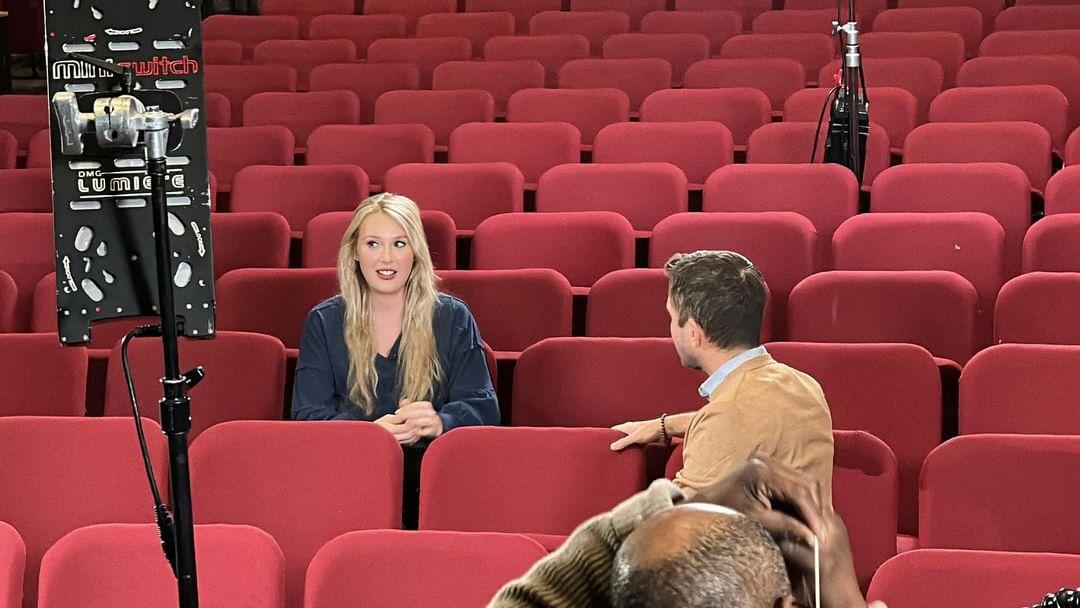Junior Gabby Hankinson talks on her phone, unaware that every minute she spends chatting may increase her chances of developing brain cancer. Recent studies have shown that long-term cellphone use is linked to getting brain tumors. However, these studies are not considered completely infallible because they lack a definite explanation.
Researchers have been comparing the cellphone usage of people who have cancer against that of people who do not. One crucial dilemma between the two kinds of people is that those who have the tumors may have a tendency to exaggerate or misremember information regarding their cellphone usage.
In an interview with CNN, Dr. William Curry, a neurosurgeon at Massachusetts General Hospital said, “A stronger approach would be to follow young people who are just starting out with cellphones for a generation, asking them about their cellphone use over time and seeing what portion gets cancer.”
Recent studies also seem to have neglected to compare the safety of text messaging to making cellphone calls. The statistics about the chance of a cellphone user getting a brain tumor in comparison to the risks that a nonuser faces, goes to show that text messaging just might be the right way to avoid health problems.
Many students seem to choose texting over calling, decreasing their talking time, which could give them a greater chance of not developing brain tumors. Sophomore Hiba Abuelhawa said, “Overall, I like texting because it’s more efficient and decreases a chance of cancer.”
As technology advances, cellphones are becoming more common and widely used. “Cellphones have been more accessible which gives students a greater chance to have one,” senior Kayvon Naghdi said.
However, with more accessibility to cellphones comes the potential increased risk of developing brain tumors and cancer.
This is disconcerting after some evidence has arisen that people who have frequently used their cellphones over a ten-year period of time or longer have a 10 to 30 percent higher chance of developing a tumor.
Though there is no definitive evidence linking cellphones to cancer, it is best to be cautious and careful. There are several precautions one can take to decrease risks such as talking less on cellphones, using the speakerphone and keeping as far of a distance as possible from the phone. Additionally, children should stay clear of cellphones with the exception of emergencies.
Though risks exist, many students continue to use their cellphones. When asked about her thoughts on getting cancer from cell phone usage, junior Andrea Vega said, “I’m on my phone 24-7 and still don’t have cancer, so I’d say the chances are pretty low.”
Since it is undeniable that cellphones have become a near necessity in modern-day society more evidence will be needed to conclusively prove whether cellphone usage is directly linked to brain tumors. Although research suggests that there is a possible link between cellphone usage and cancer, many students seem to believe that the benefits of using a cellphone outweigh these risks.
“I am aware of the risks of talking on cellphones but am not taking any precautions because I’m going to die eventually,” Hankinson said.
Other students seem to have a different opinion. Junior Mitra Shamsian said, “I don’t want to take any risks, so I try not to put my cellphone in my back pocket and also put my phone on speaker when talking.”
Most, like senior Nipal Elkhebri, seem to be unaffected by the recent reports of the potential risk of developing brain tumors and cancer. “I am not too worried about recent reports because I don’t really talk on my cellphone,” Elkhebri said.






foster • Feb 6, 2010 at 9:32 am
A timeley subject but I have to say, What?!!!! A better spin on this story would be from a purely skeptical viewpoint. I am incredulous that students guage their behavior with cell phones on the possibility that they may get brain cancer! That makes it even more important to write a story correcting that piece of misinformation.
Liz Wilson • Feb 5, 2010 at 7:36 pm
I am generally impressed with the level of professionalism in the stories
and how the students write about them. However, I was really surprised
to see an article in the last paper, Volume 55 Issue6, that was
factually incorrect. The article “Teens talking too much?” asserted in
the subtitle that, “Research shows that cell phone use now can cause
cancer later.” The writer goes on to talk about research proving that,
“long-term cell phone use is linked to getting brain tumors.” This is
simply not true. The U.S. National Institute for Health says on their
website, “Studies have not shown any consistent link between cellular
telephone use and cancer,” which directly contradicts what the author
of the article said.
What is even more confusing is the writer goes on to contradict herself
saying that, “the studies are not considered completely infallible
because the lack a definite explanation.” If she was trying to state
both sides of the issue, she should not have stated the first
perspective so emphatically.
Again, I love the A-blast and have a great respect for the writers,
editors, and others involved which is why I do not think this kind of
sensationalist and inaccurate journalism meets the high standards of
the paper.